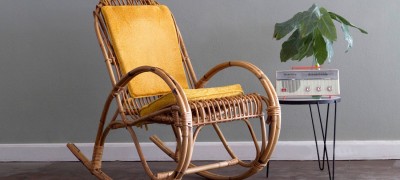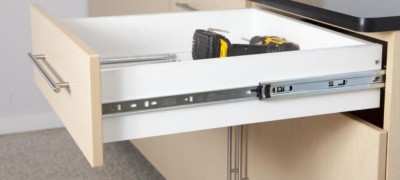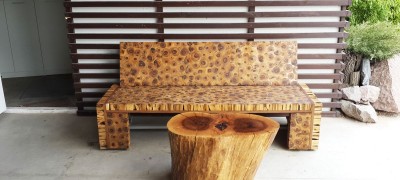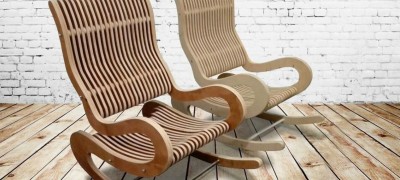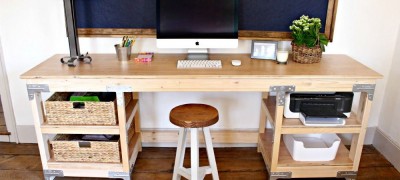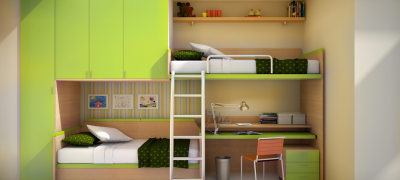Features of furniture restoration
We will consider the most necessary knowledge in the restoration of furniture and its surfaces in this article. You also need to know where to start, what tools will be needed when repairing upholstered or wooden furniture. And, of course, we will consider the rules for caring for interior items to maintain their attractiveness.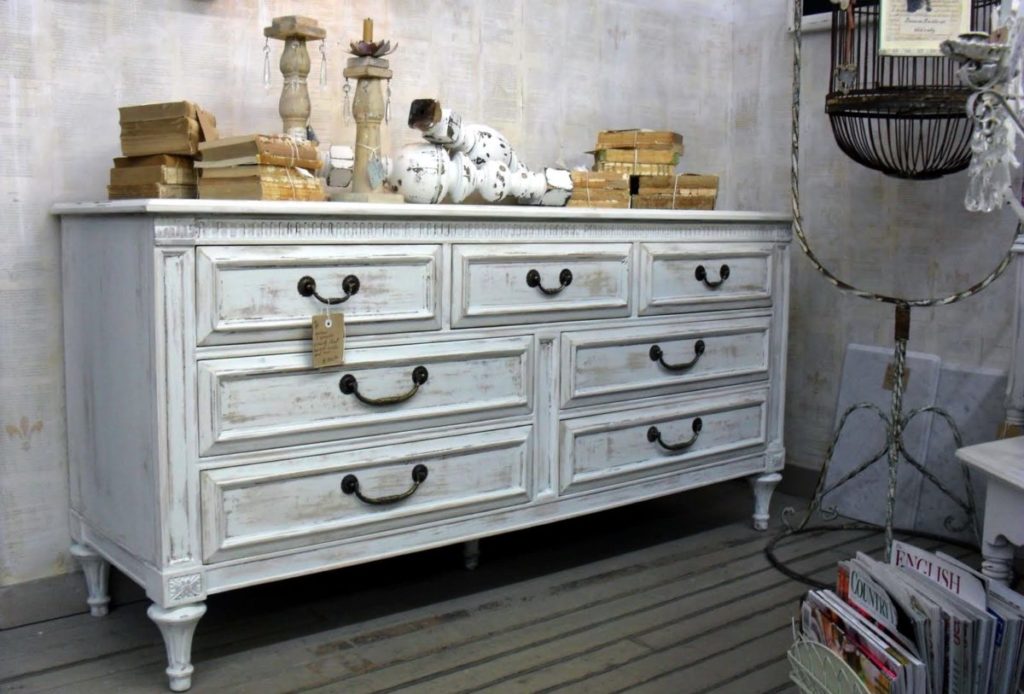
Why do you need to restore furniture
A lot of furniture that is present in the house often becomes a favorite interior decoration. They are comfortable, familiar, and you don't want to change them at all. In such cases, furniture restoration is often resorted to. This gives it a fresh look and aesthetics. At the same time, the restoration can be done with your own hands, while saving a considerable amount of money.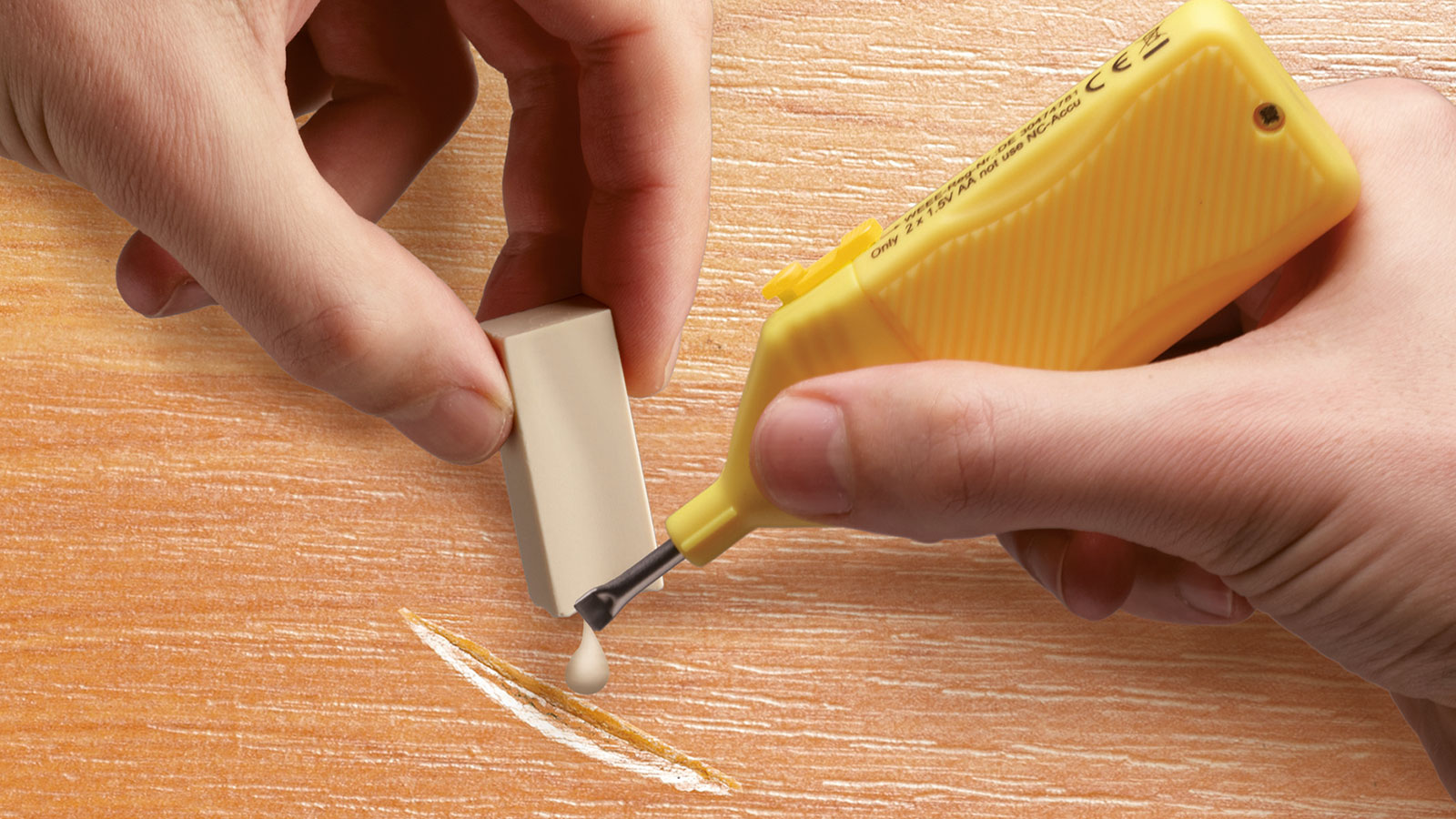
The undoubted advantage of such restoration of furniture can be considered that you can make pieces of furniture as original as possible in accordance with your taste.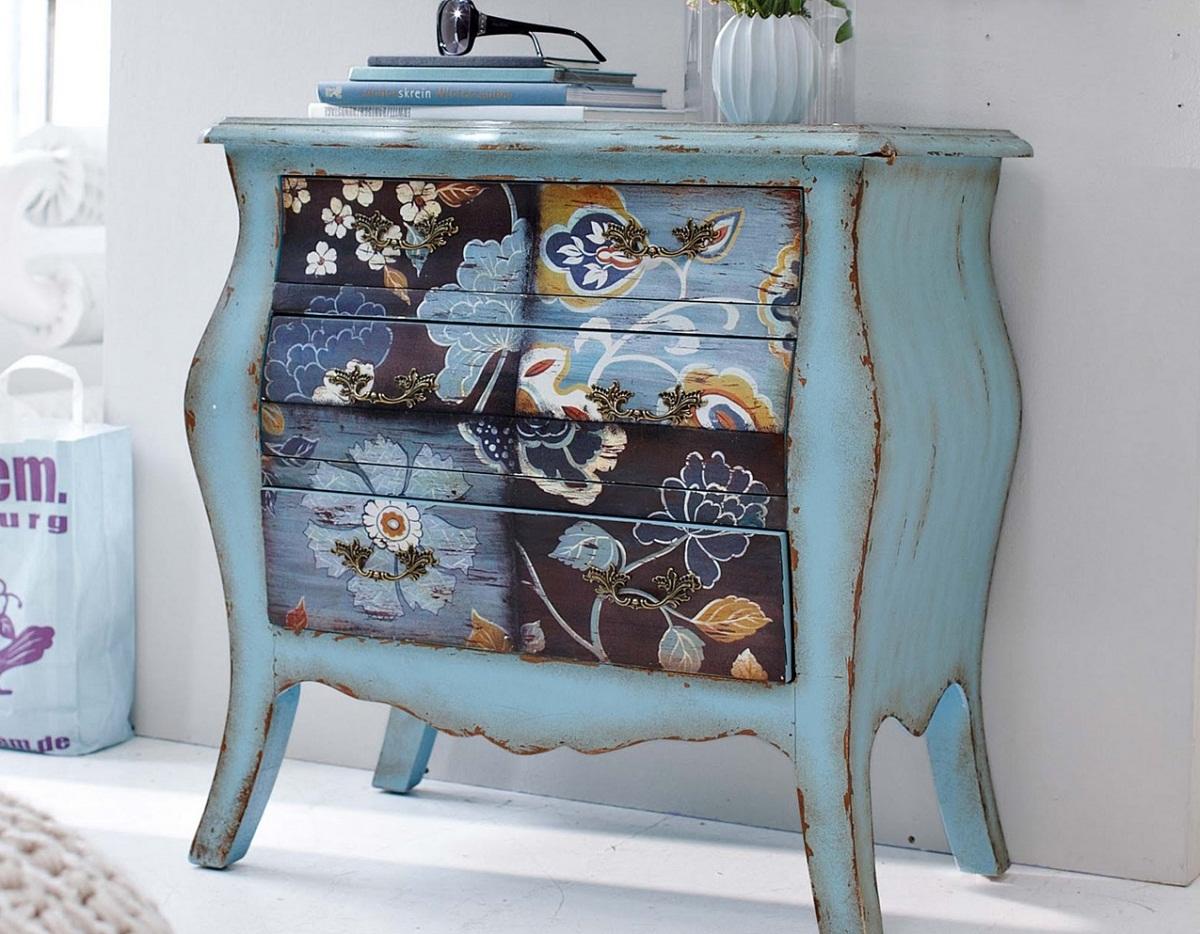
If these are pieces of antique furniture, their value is sometimes very high and restoration becomes a necessity. In this case, it is better to contact the restoration masters.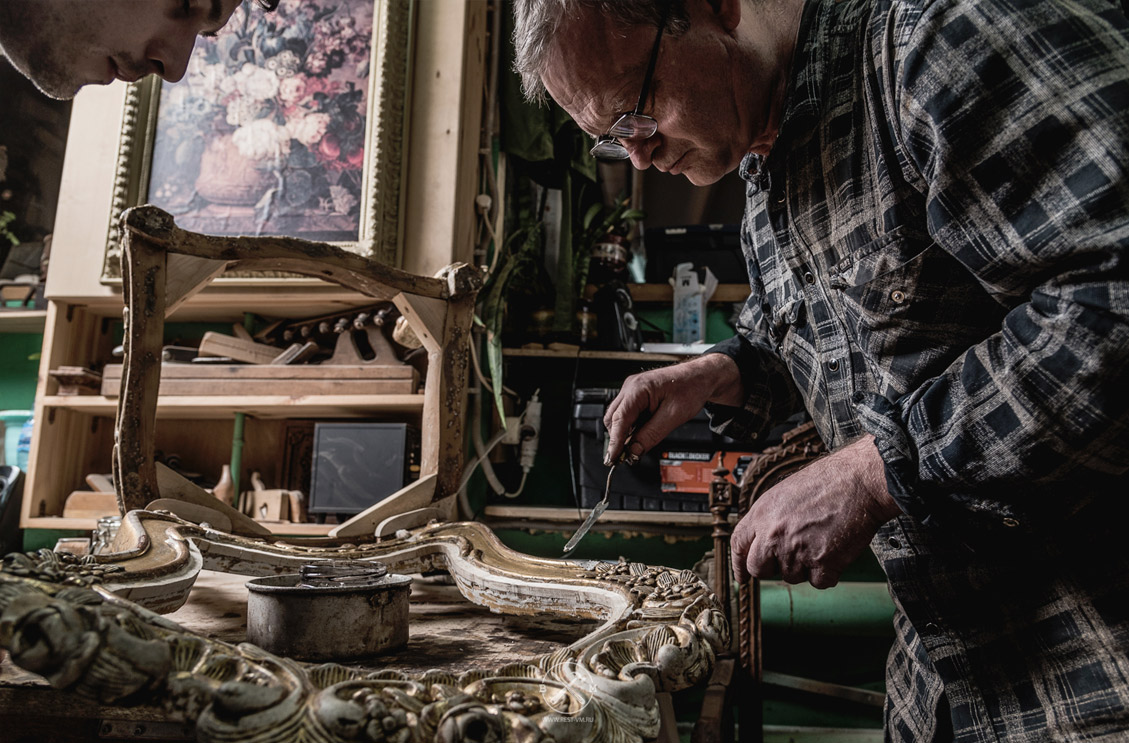
Furniture restoration
If we compare furniture restoration or the acquisition of new interior items, we can unequivocally speak in favor of the former.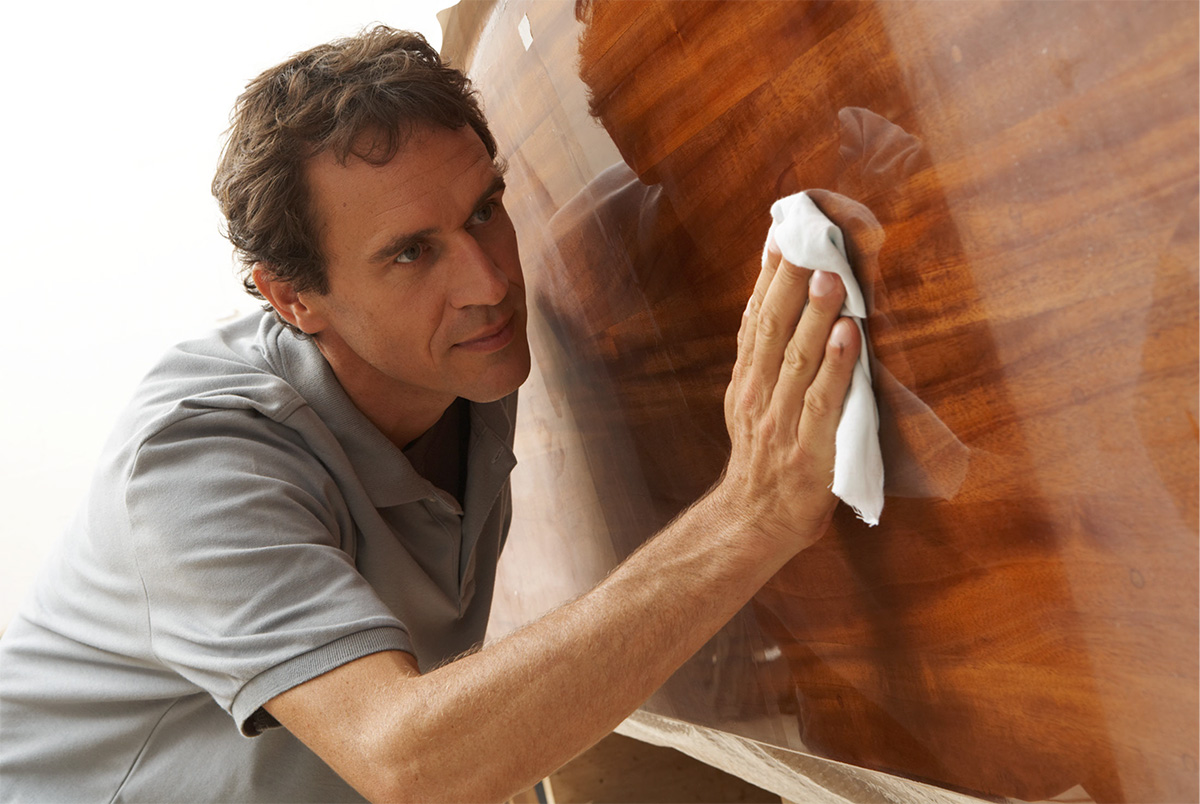
Advantages:
- Saving. With the current variety of materials and a really extensive pricing policy, you can significantly reduce the cost item in your budget.
- Furniture transportation is not required.
- Time, it is not necessary to set the terms of repair, you can do everything when there is an opportunity for this.
- You can always make changes or add something new to the work already done.
- The use of both purchased materials and those that you already have in stock.
- The opportunity to get a unique item, which will be in a single copy.
- New life given to your favorite pieces of furniture.
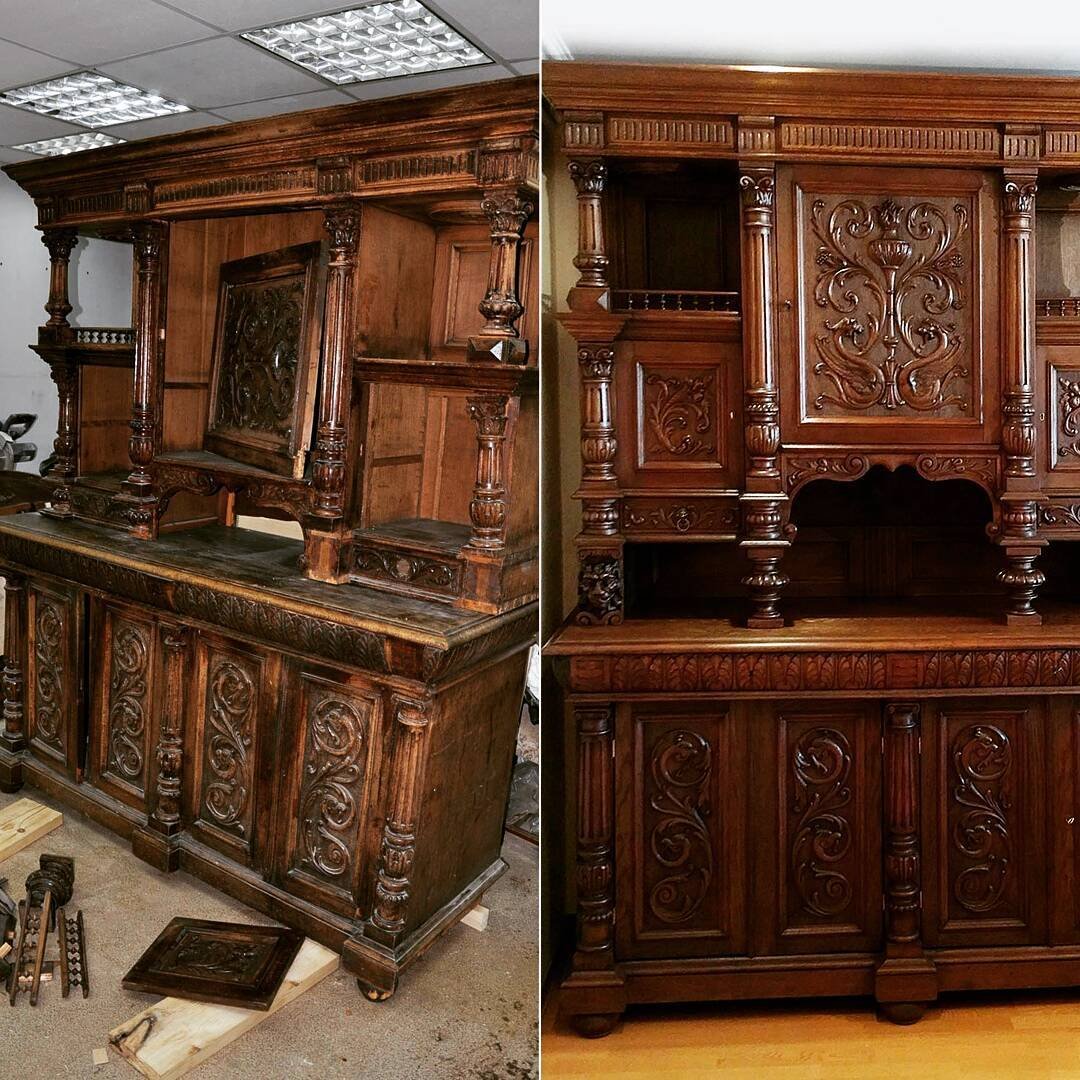
Selection of tools
Furniture restoration tools can be completely different, it depends a lot on what kind of work you are going to do. For example, if this is the restoration of wooden furniture you will need:
- Sandpaper, you need to take several types of different grain sizes;
- Ruler or tape measure, square;
- For marking the fastening of parts, special markers for wood, although ordinary pencils can be dispensed with;
- Spatulas, plastic and metal;
- A hammer or mallet (if you are afraid of severe damage) so that you can knock out or, on the contrary, knock out the desired part;
- Wood glue;
- Putty for restoring wood furniture;
- Paints and varnishes that are suitable for this particular subject;
- Screwdrivers, their size and shape must be determined when examining the fasteners on furniture;
- Brushes, if varnishing is provided;
- Gloves, mask or respirator (it is advisable to protect the lungs from dust or when painting);
- Scissors, chisels, furniture scrapers.
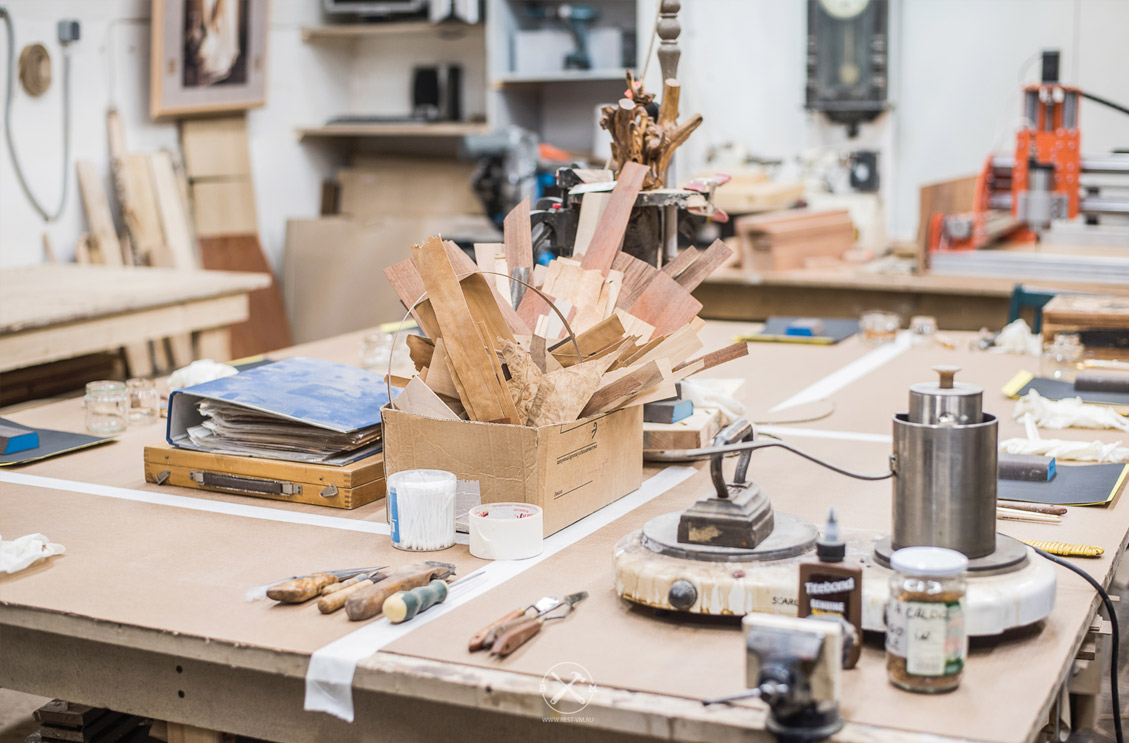
Preparing furniture for the procedure
In order to restore your furniture, you need to carefully prepare it for further work. To begin with, a complete inspection is carried out, we identify all violations of integrity, cracks, various chips or scuffs. We remove all the accessories that are possible. In this case, it is necessary to disassemble and (or) remove all elements that block access to hard-to-reach places of wooden furniture, these can be shelves, hinged doors, drawers, etc.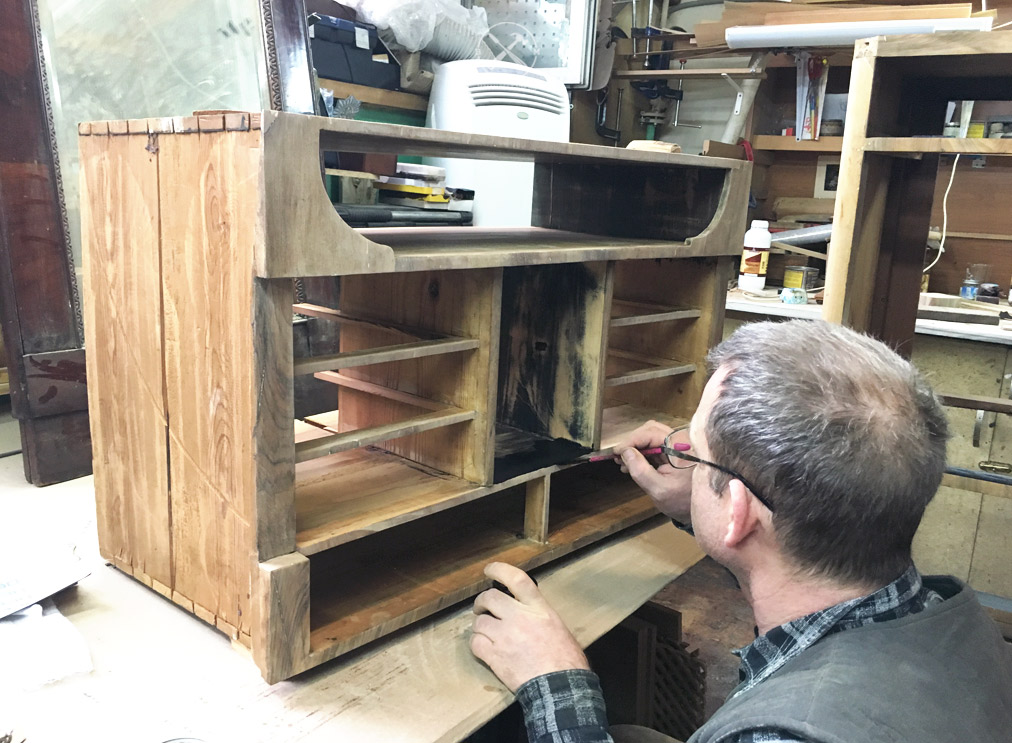
If there are elements of the product body that are attached with glue and their structure is not broken, it is better to leave them in their original state.
Furniture restoration
Any restoration of wooden furniture should begin with identifying the tree species from which the item is made. For different types of wood, you can choose a coating that will look more profitable and last longer. All pieces of furniture to be repaired must be free of dust, stains or grease. Remove cracked varnish.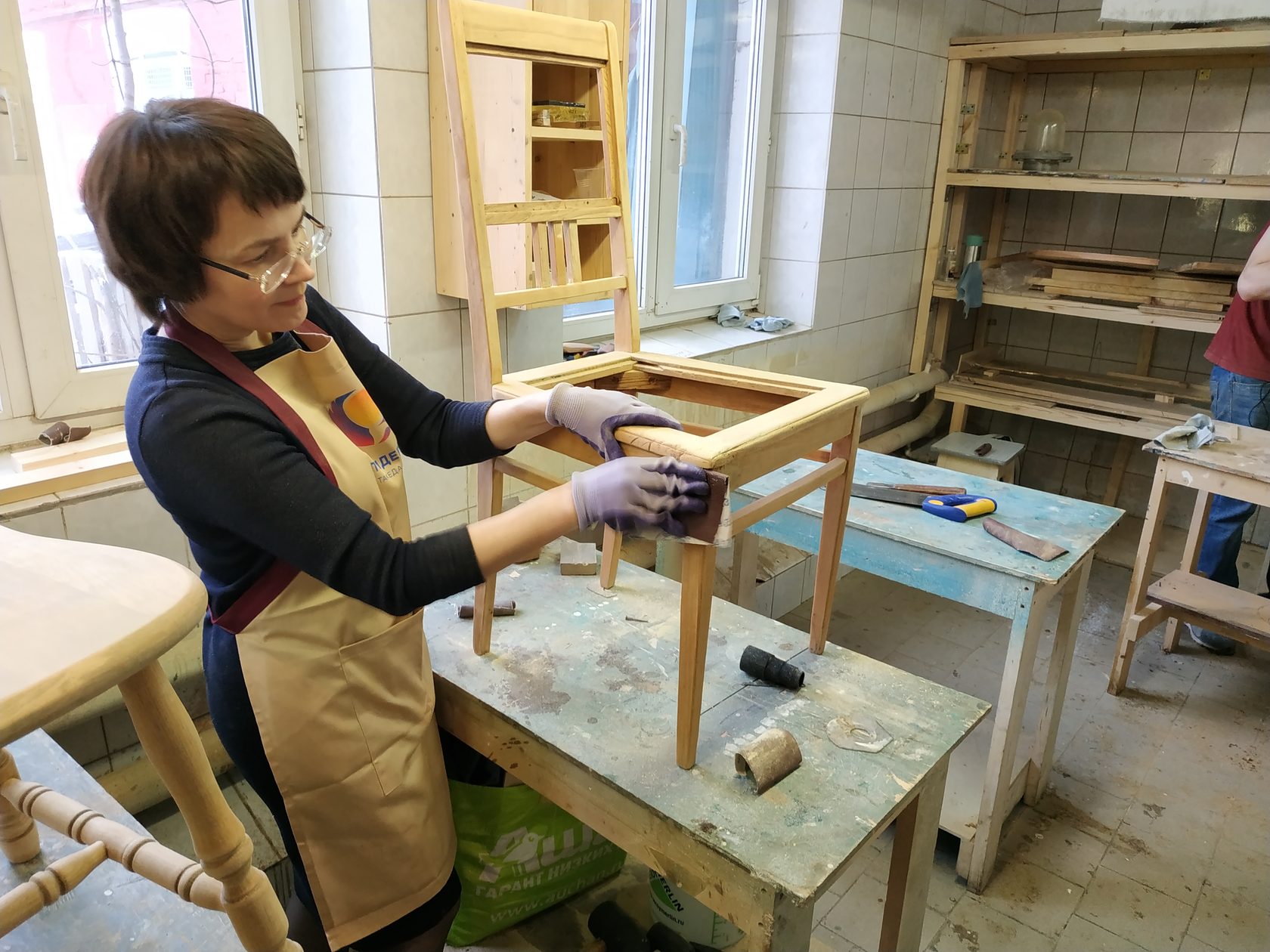
Surface restoration
To make your furniture look more attractive, sometimes only surface restoration is sufficient. Most often, it is this element of the piece of furniture that suffers. These are scratches, traces of cups and other damage.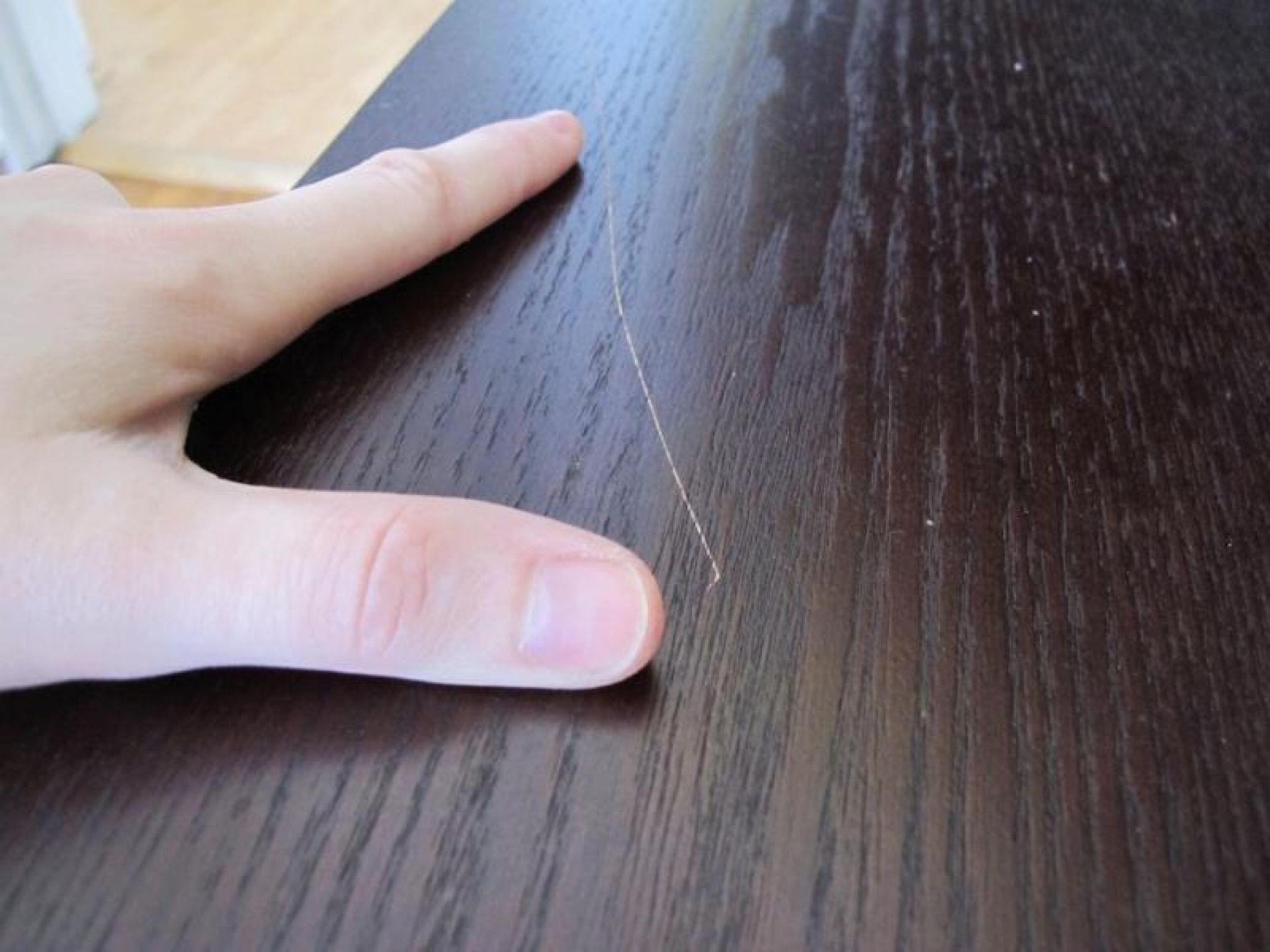
You must thoroughly clean the required surface in a manner that is preferable to you. Grinding, sandpaper, special solvents.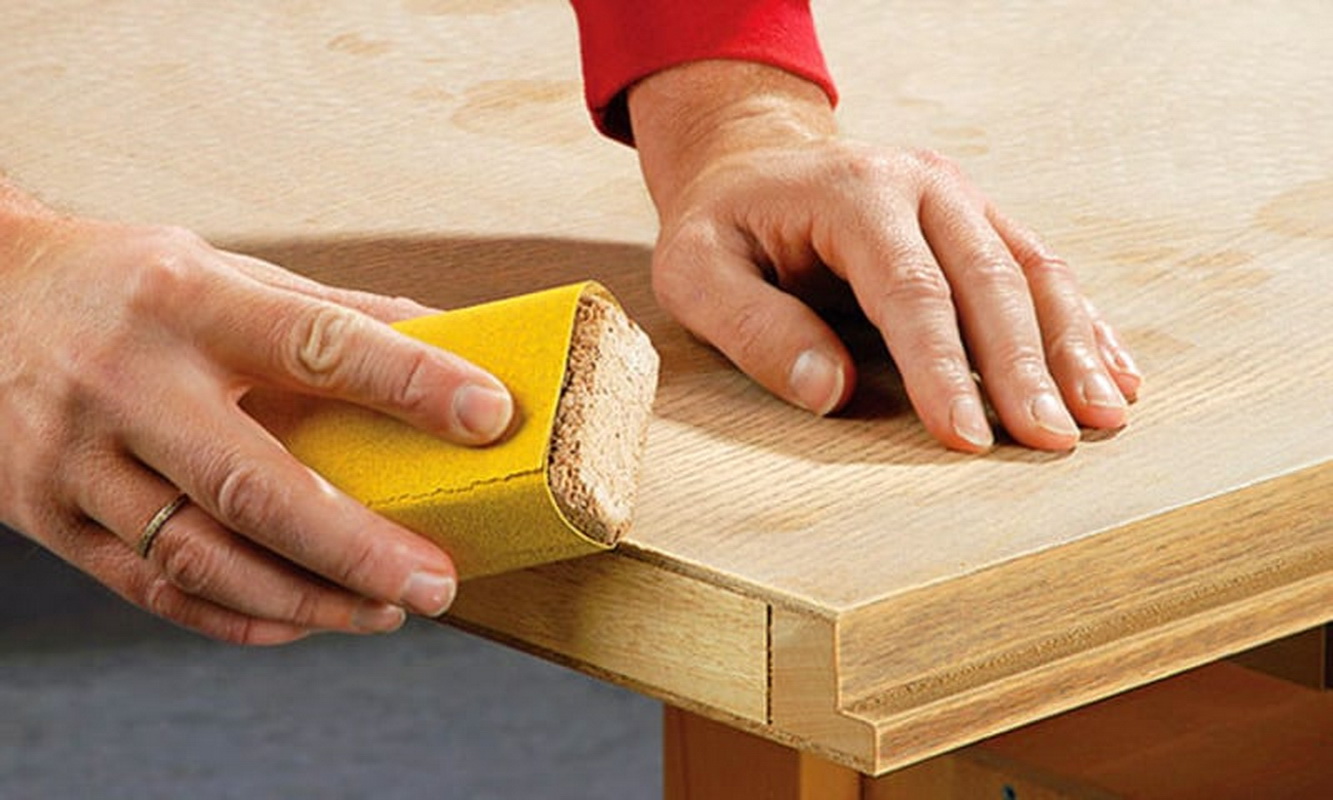
When removing the top layer on the restored surface, it is important to wear protective equipment (gloves, masks).
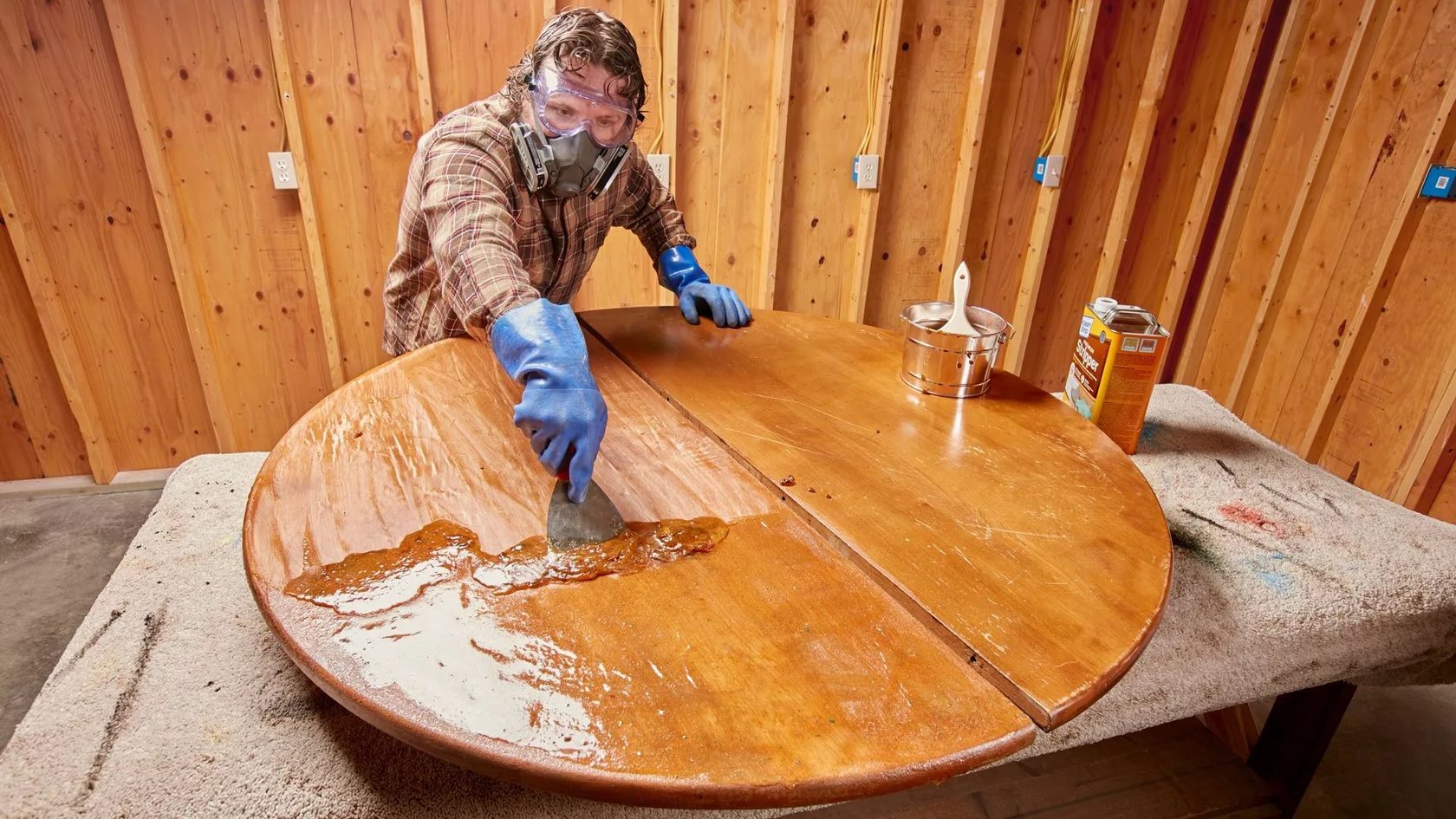
Then, proceed with the actual repair itself. Consider this below.
Restoration of natural wood surfaces
Many people prefer the natural color of wood to all bright and modern finishes. If you plan to restore wooden furniture, with the return of its original appearance, you need to look at how serious the damage is and, based on this, use the following methods:
- Moisture damage. A combination of salt and olive oil can be used to reduce wood swelling. Having prepared the gruel from them, you need to rub it into the place that was damaged and leave for half an hour. At the same time, the salt absorbs all unnecessary moisture, and the oil will return the wood fibers to the required shape.
- If your surface has scratches or cracks that are deep enough, they can be masked with wax putty. They come in a variety of shades, so when mixed (if you don't have the right color), you get exactly the natural shade that matches your furniture.
- It is also possible to use alcohol and wax for restoration work. In this case, the surface must be completely cleaned with detergent and well dried. Places that have become light and require color return are abundantly moistened with alcohol and after the stain disappears, wax is applied to this place, which is then polished with a soft cloth. This method is suitable for scratches that are not very deep and cracks.
- Applying special markers designed to touch up wood surfaces.
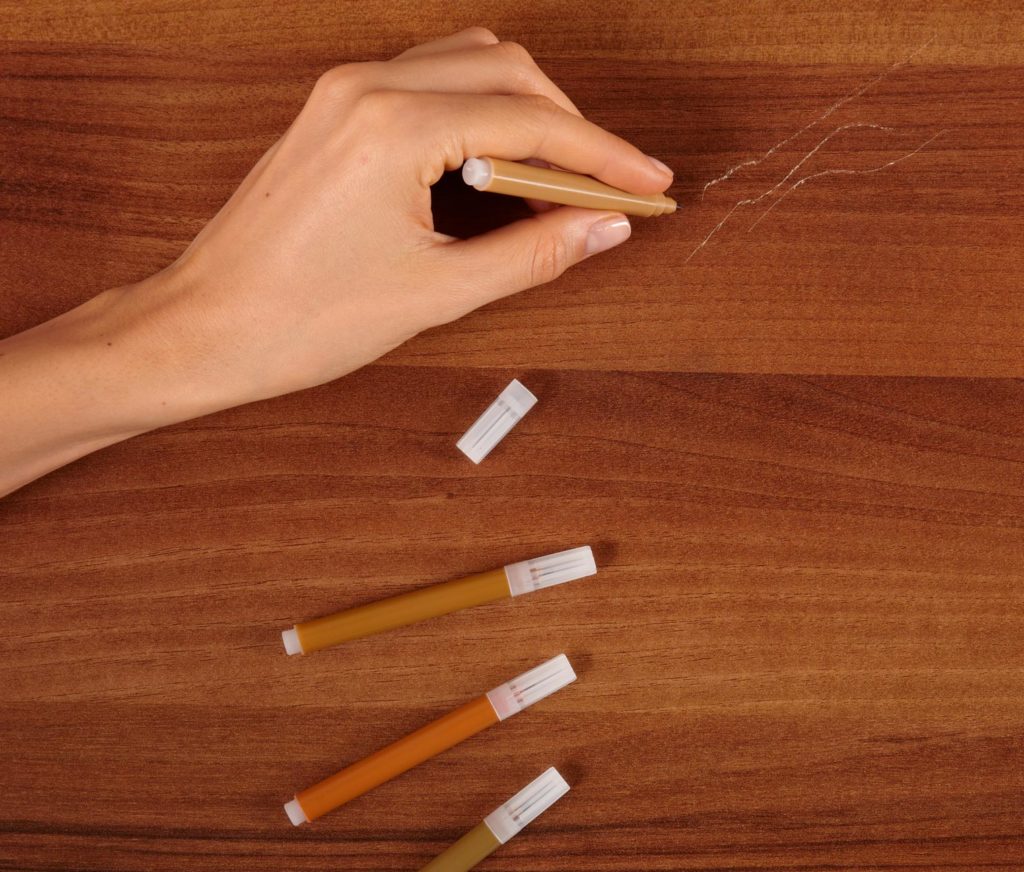
Restoration of polishing
It is necessary to restore polish on furniture with special responsibility. She is responsible for the appearance of the product and gives it a well-groomed look. By eliminating small areas that have been damaged, the surface of the old varnish can be restored to its former appearance.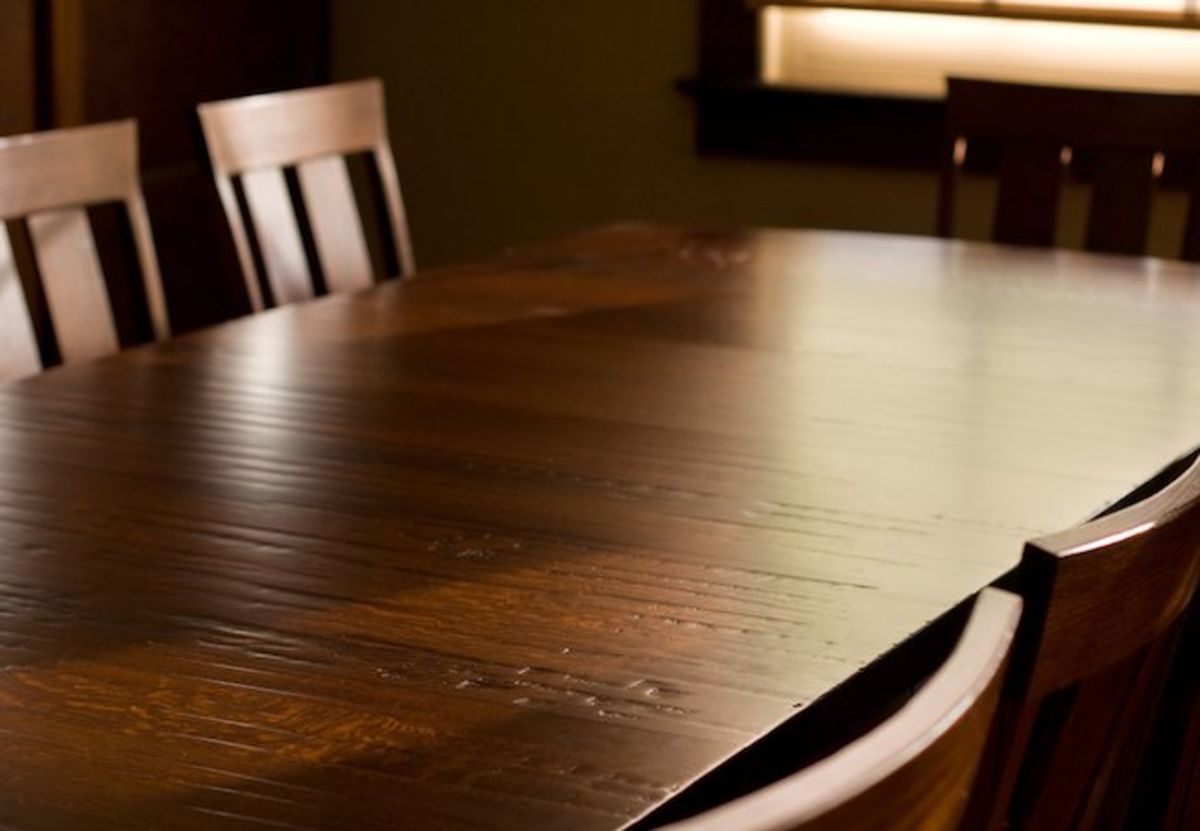
When choosing the varnish you need for restoration, remember that alcohol varnishes are perfect for this purpose, since films during the application of such varnish are formed when the solvent evaporates.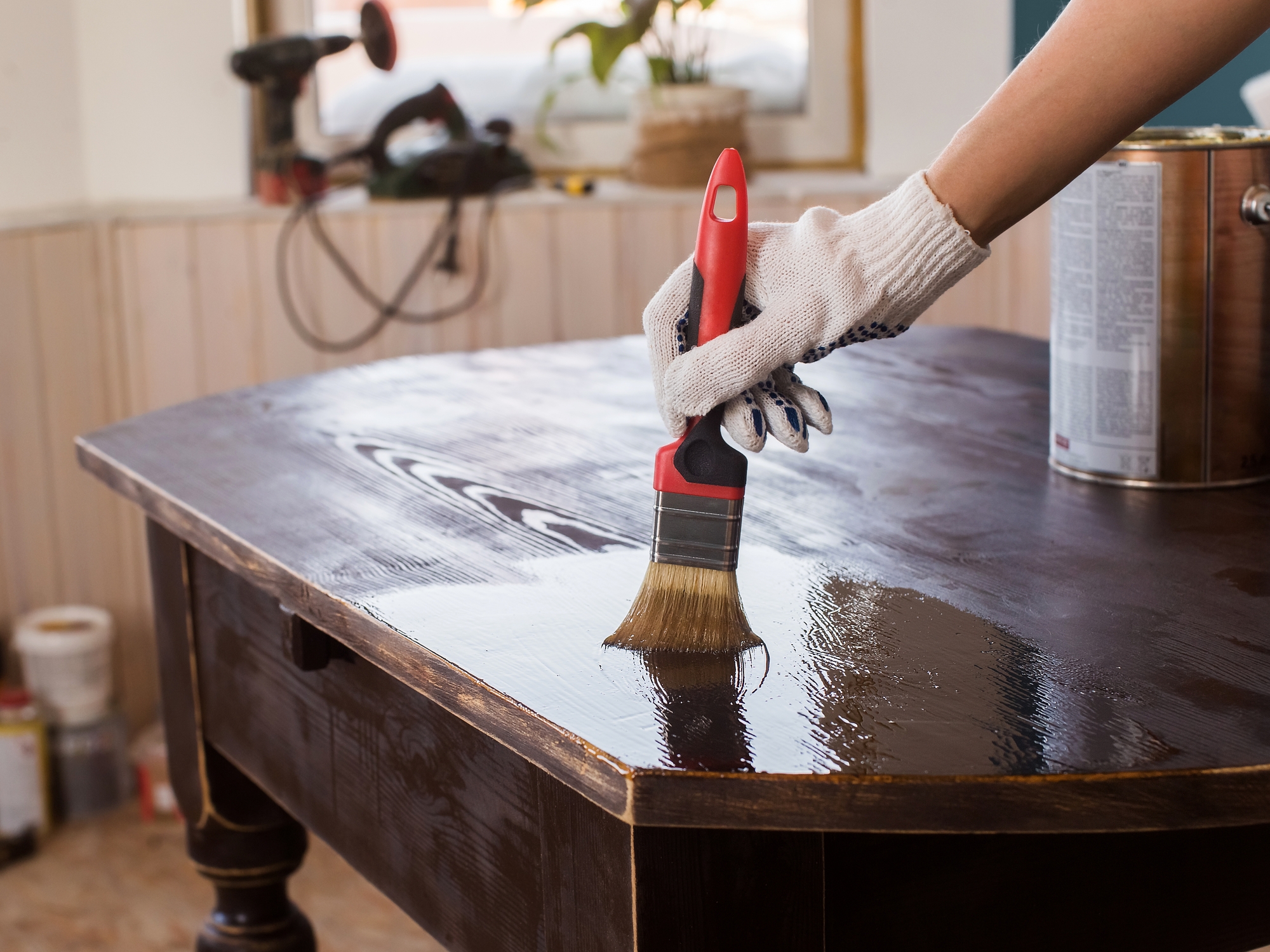
This is what allows the soldering of new and old lacquer particles to take place. It is necessary to use a tampon made of wool or other soft fabric, it is moistened in varnish, the excess substance is squeezed out and the varnish layer is restored on the surface in a circular motion.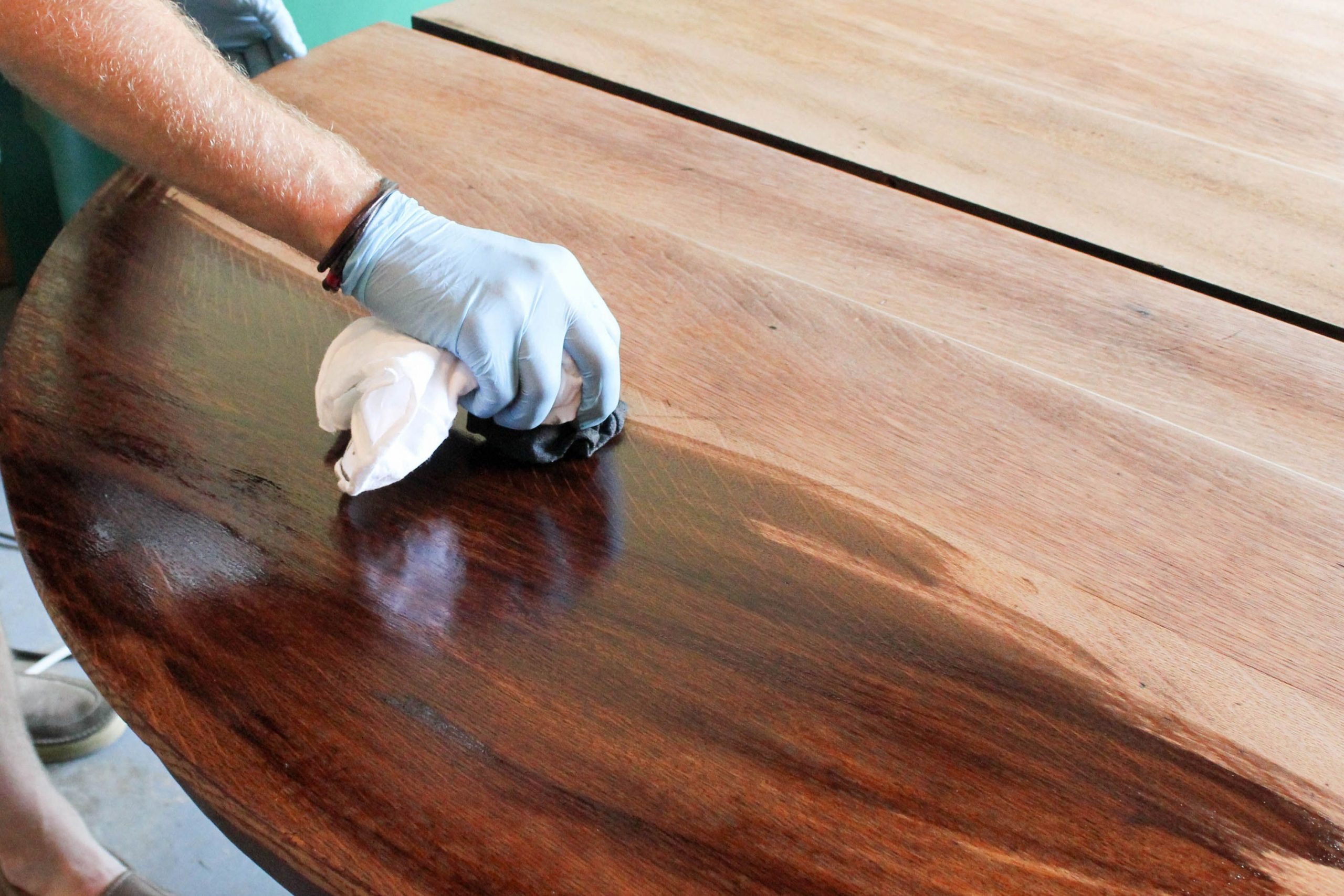
Removing the paint layer
Several methods can be used to remove a layer of old varnish from wood. This is possible with sandpaper or using a special remover solution. The wash is much easier to use. The main thing when buying a product is to read the instructions and make sure that it is suitable for your wood or it is universal. Separately, you need to find out about the consistency of the remover, they come in the form of a liquid, paste or gel.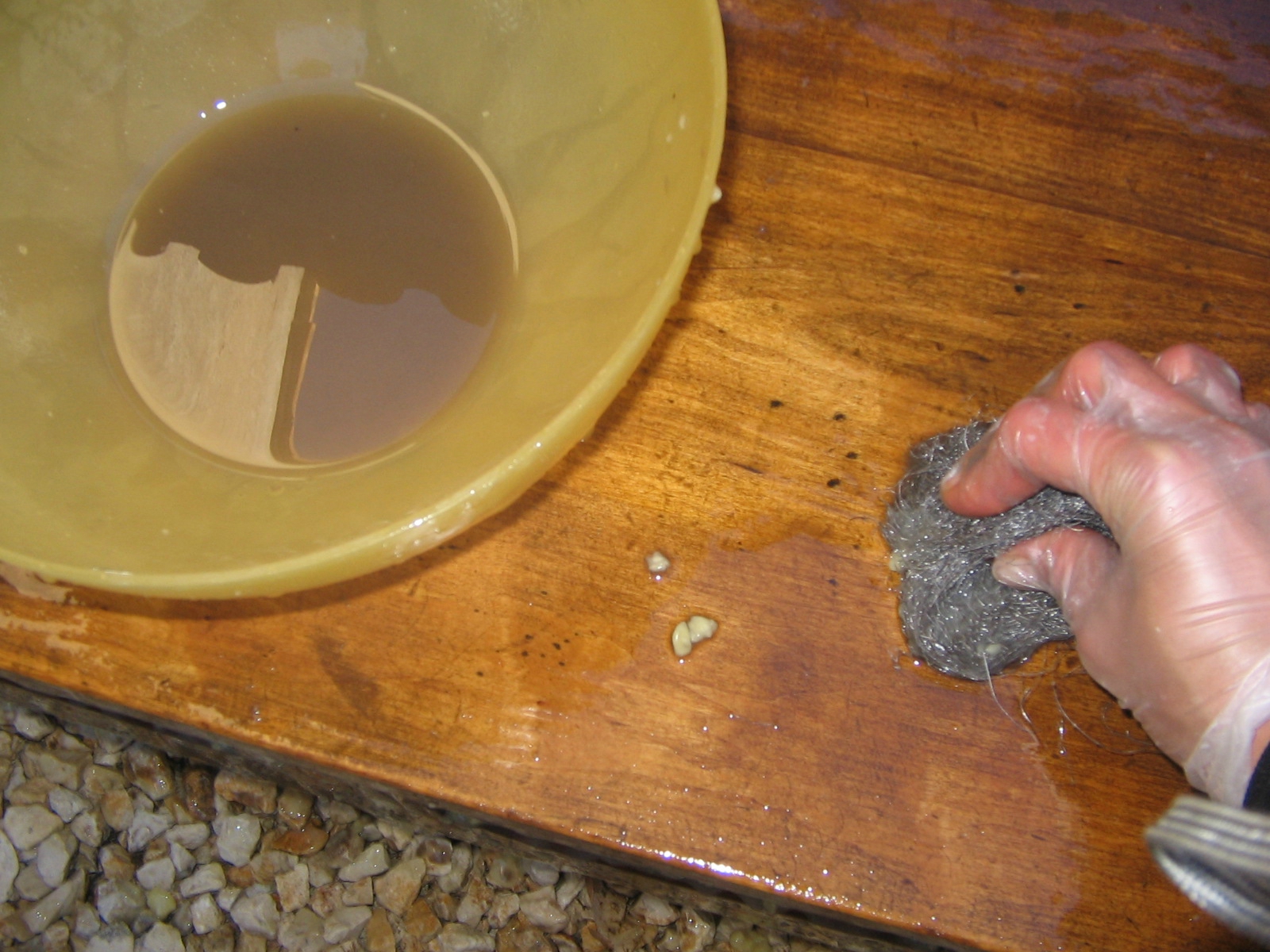
Suitable for removing varnish from horizontal, vertical or other surfaces. For complete cleaning, you need to apply an even layer of the agent on the old layer of varnish, withstand the specified time (if you cover the treated surface with polyethylene, the effect of cleaning deep cracks will increase), then take a spatula to carefully remove the unnecessary layer of coating.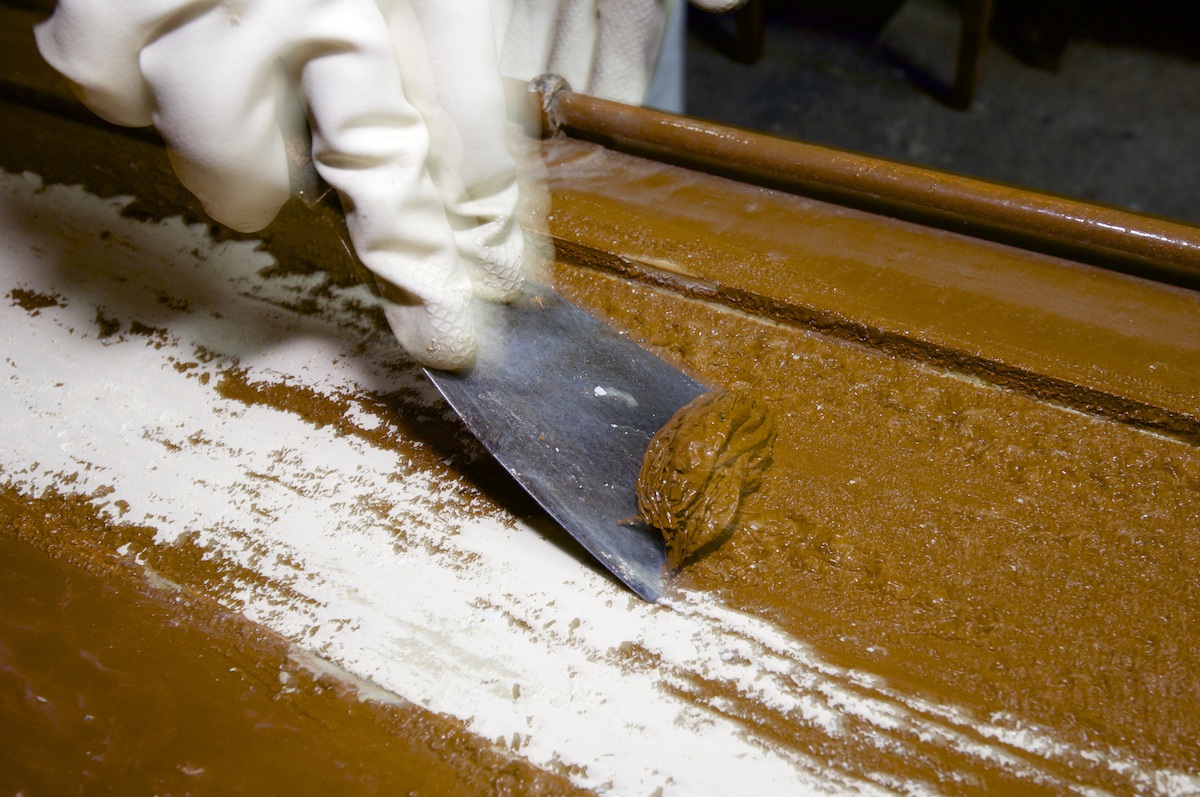
Wash the surface and leave to dry completely. After that, the surface is sanded, removing all irregularities and preparing for the next stage of work.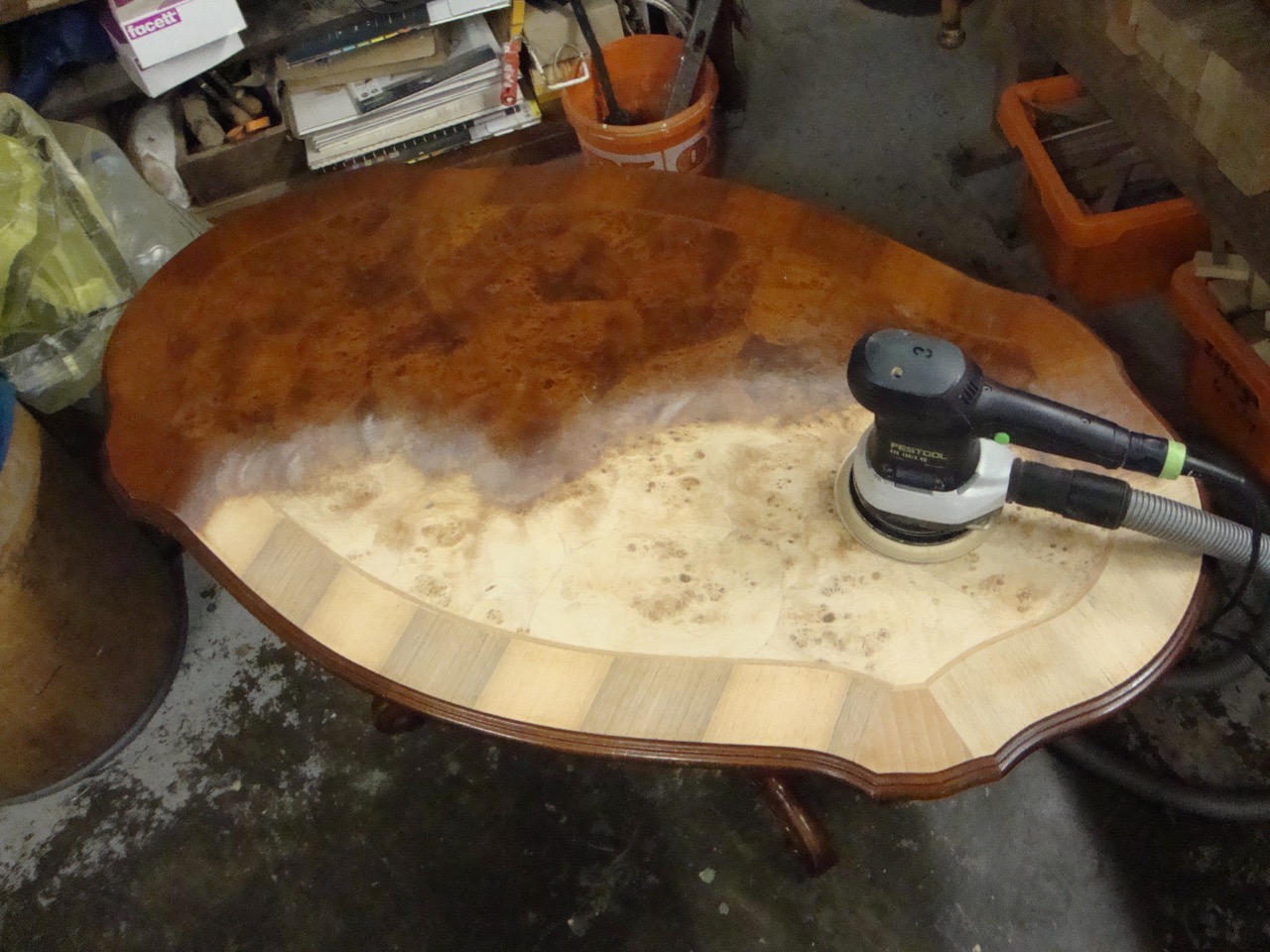
During this work, the use of personal protective equipment is mandatory.
Veneer restoration
The facing material of your furniture, or veneer, can also be damaged or broken. If this is minor damage or the shine of old age has simply lost, there is the possibility of ordinary polishing, using products that contain tons of orange oil. Such a product will restore the shine of the furniture.
If the material is swollen or mechanically damaged, the following methods should be considered. It is necessary to determine the degree of detachment. If it is small, then putty is made on wood, previously cleaned and degreased. The veneer surface that has become unusable is removed, the edges are sanded, then the free space is filled with putty, leveled and left until completely dry.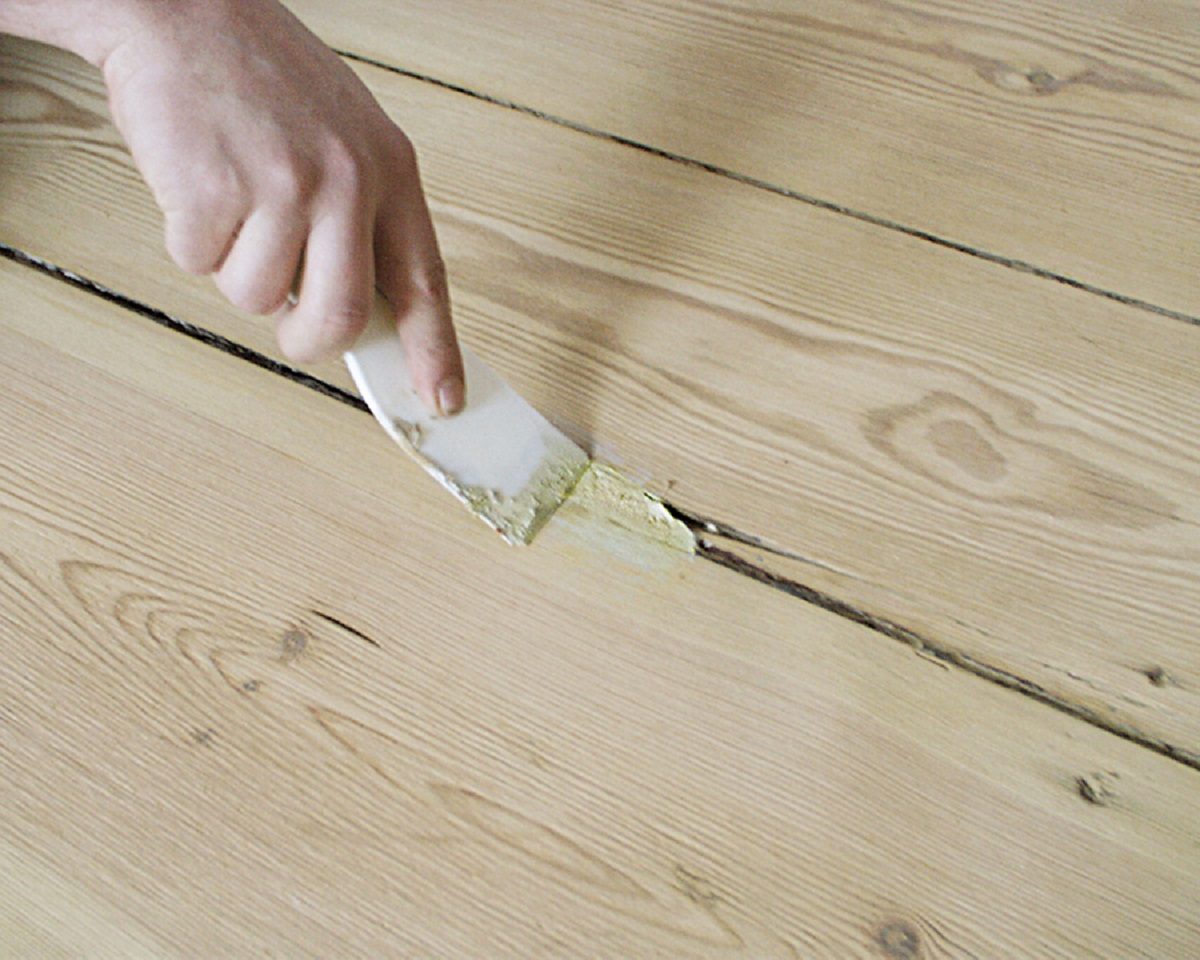
Finally, it is sanded with fine sandpaper.
When swollen places are formed, glue is used. If possible, the old adhesive material is cleaned, then the fresh one is carefully introduced and the place is exposed to some kind of press. You can also try to glue the swollen area with a damp cloth and a hot iron; under the influence of hot temperature and moisture, the glue can get wet and connect the layers that have come off.
Painting furniture surfaces
Most importantly, when painting, the preparatory work carried out correctly.After complete cleaning, removal of defects, leveling of the desired surface by applying a primer or filling, it is necessary to wait until the object is completely dry. And only after that, having previously selected the desired paint, proceed. It is advisable, if the interior parts of the furniture are involved in painting, to start with them.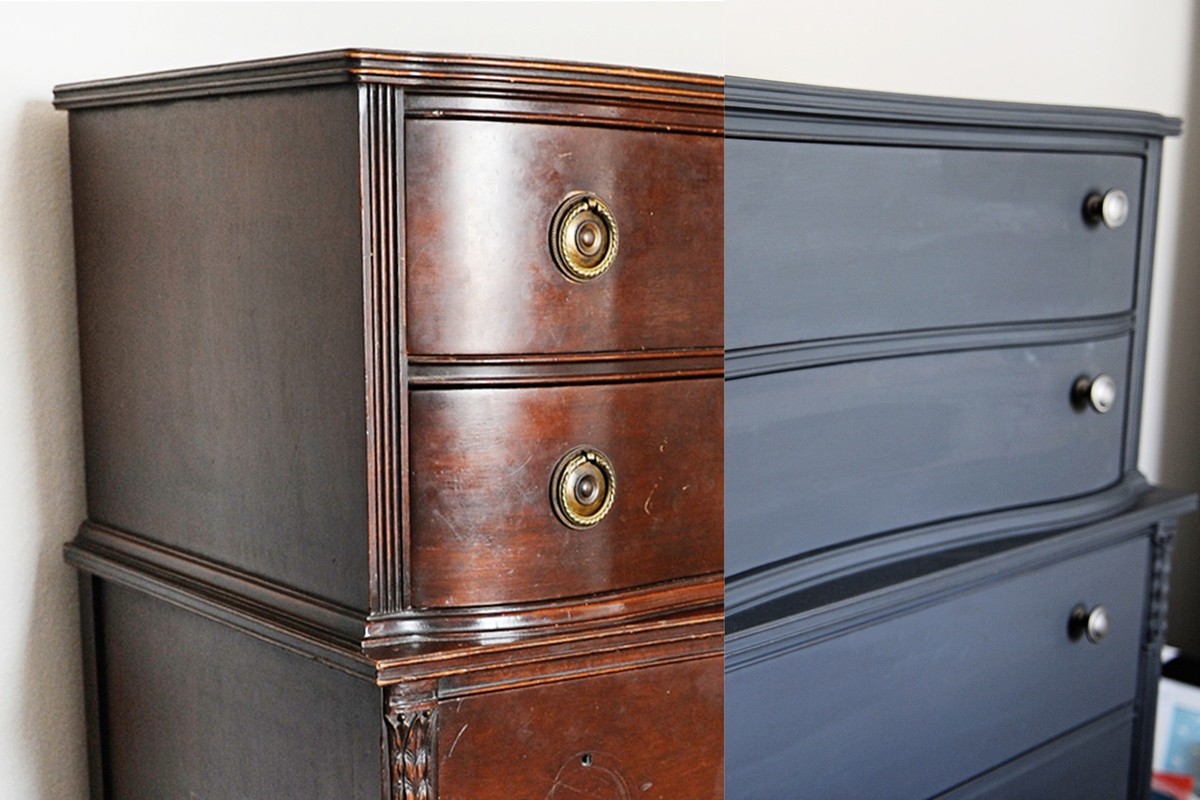
Thus, it will be possible to see how the paint material behaves on the surface and subsequently to avoid ugly smudges on the front side of the furniture.
Decoupage on furniture surfaces
This is one of the most popular ways to decorate pieces of furniture during restoration. The very essence of this method is that pieces of furniture are decorated with paper elements with a pattern (soaked in glue), then, after hardening, such "applications" are covered with a transparent varnish on top.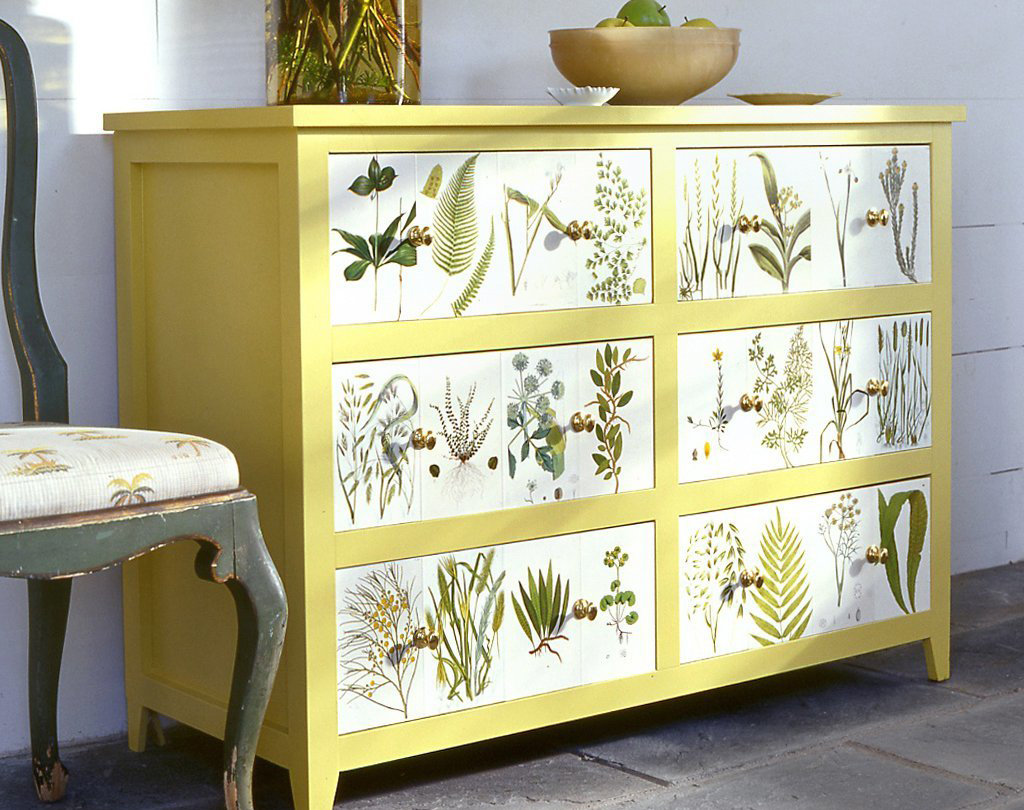
In this technique, you can create truly unique interior items. The main condition for sticking drawings is a perfectly flat surface, otherwise the application will be uneven or will go in bubbles.
For inexperienced people, try this technique on small and unimportant areas of furniture.
Restoration of upholstered furniture
Typically, such a restoration implies a constriction of fabrics on furniture. In order to restore upholstered furniture, you need to disassemble it, remove the fabric cover and make the necessary pattern on the new material. In this case, pay special attention to the layer, the so-called filler. If necessary, replace it with a new one as well.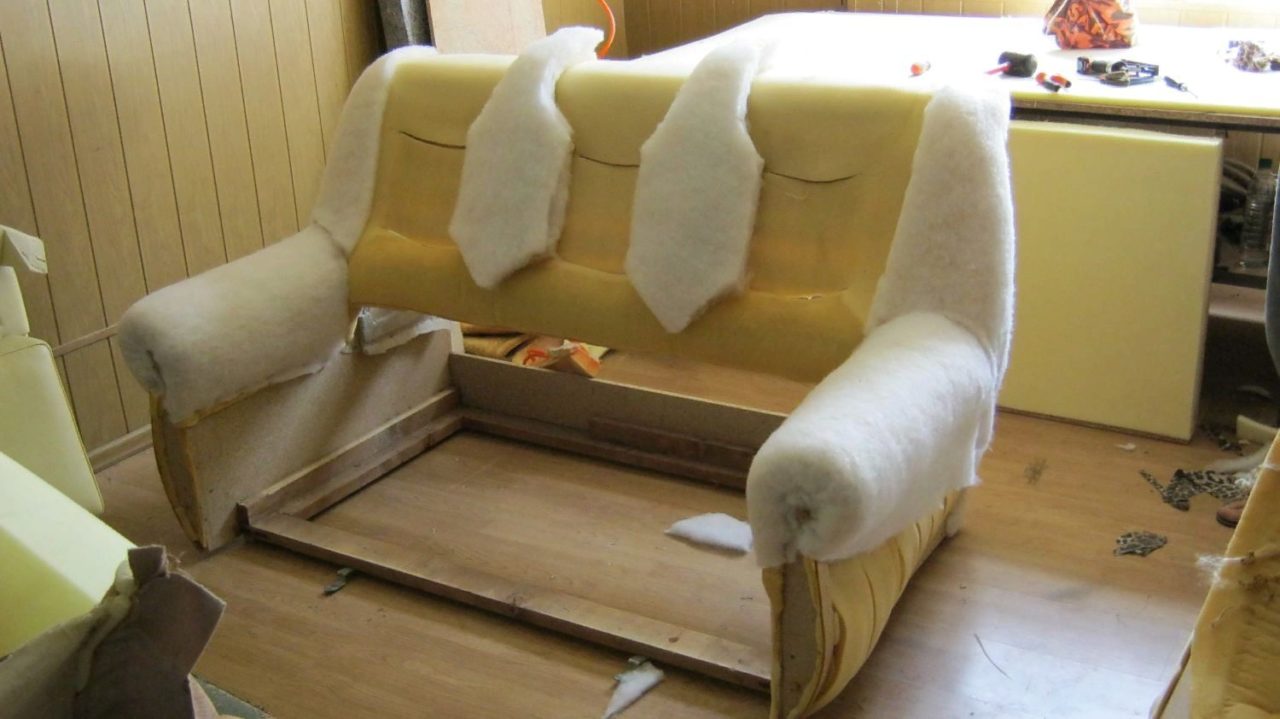
If you have fixed the fabric on all elements of the furniture, it is worth replacing parts that have become unusable or no longer correspond to good work before assembly. The fabric used to make the pattern can be of any color, but for long-term use it is worth choosing the increased wear resistance of the material.
Eliminate scratches and damage
In order to remove small damaged areas on furniture or make them less noticeable, special products are used, which can be purchased in stores. Or also many people use folk knowledge. These are tea leaves, stain, markers and even iodine.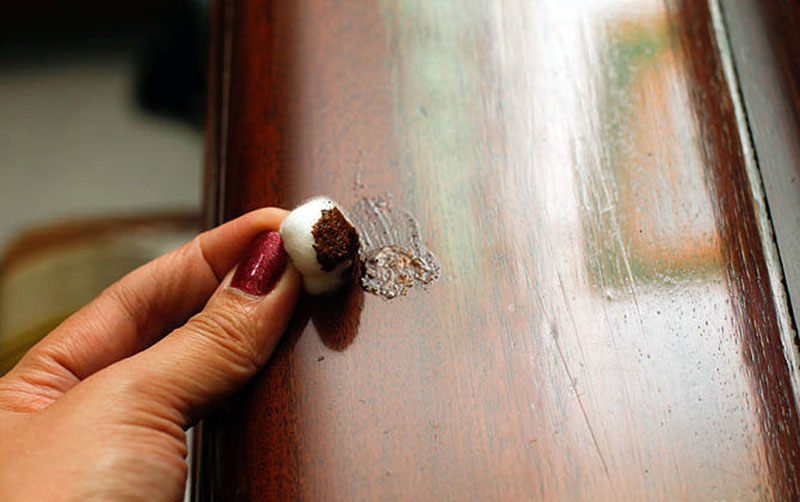
Applying all this to fill and color white furrows on furniture, which are formed during mechanical damage. By the way, one of the "exotic" remedies is ordinary mayonnaise, due to its fat content and moisture, wood fibers are absorbed and the edges of the damaged area are tightened when swelling.
Furniture care rules
There are some types of wood that need special care, usually the sellers of such furniture warn about this. But the general rules for caring for pieces of furniture can be specified as follows:
- Exclude caring agents that have an aggressive environment;
- Remove dust with a dry cloth or a dusting brush;
- If you wash furniture, then it is imperative to wipe it dry;
- Do not use care products with hard lint.
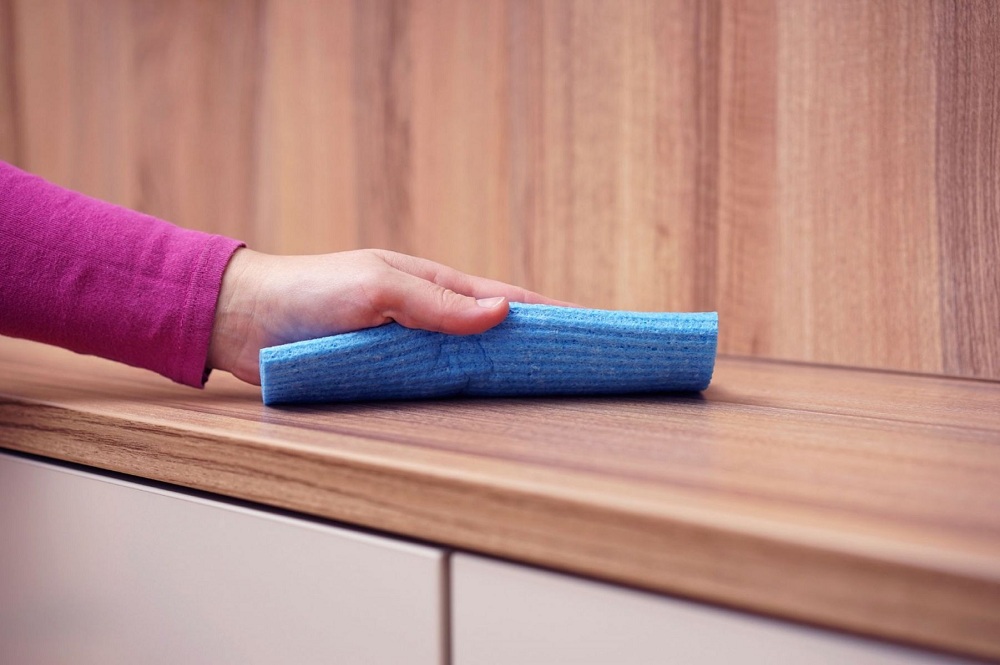
For many, restoring furniture with their own hands becomes a pleasure, and for some, a profession. Indeed, in fact, it is not so difficult if you understand everything, and you will definitely get the effect of such a restoration in the form of rave reviews from your family and your friends.
Video: an example of the restoration of an old chest of drawers
